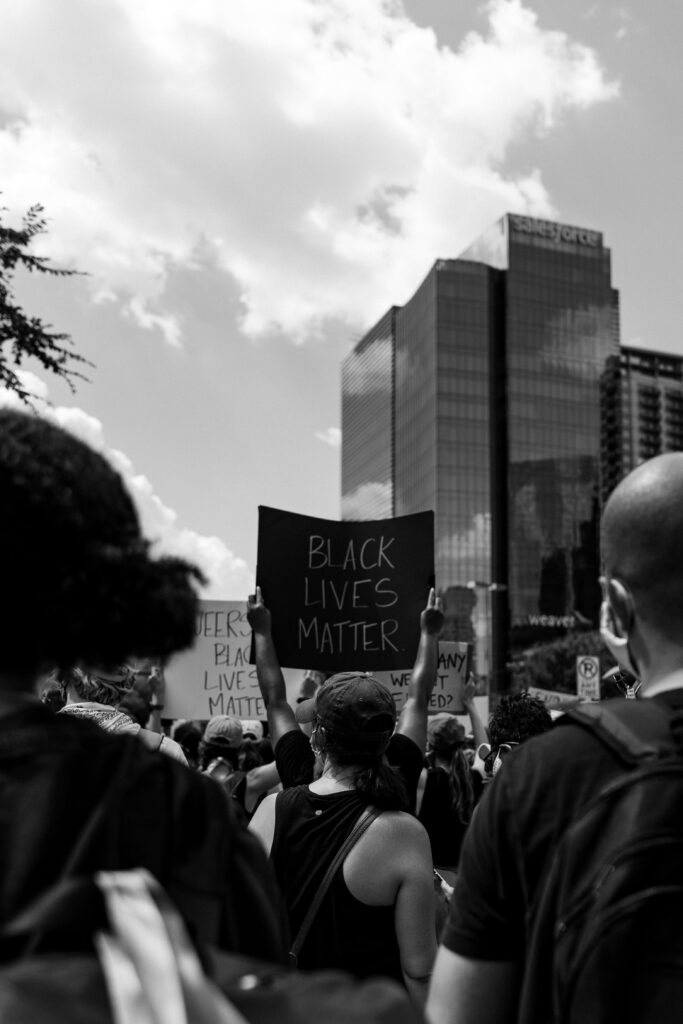NAVIGATING GRIEF AS AN ACTIVIST DURING GLOBAL EVENTS
Advocacy is hard. And, hard is a huge understatement.
I’ve worked as a social justice advocate for years now, and the toll that working in the social justice space takes on you is indescribable. Constantly surrounded by terrifying news, working for hours late into the night trying to figure out logistics of rallies, writing speeches, and so much more. The life of an activist is complicated, uncertain, yet fulfilling.
What is an advocate and what is an activist? Advocates speak out on issues, while activists take intentional actions to drive social change. Both face difficulties in managing burnout, stress, and grief- a daily part of their lives. When the worst comes to worst, how do we manage it? All the death, war, and injustice? What do we do when you start to unravel and you can barely fight for yourself much less your community?

THE IMPORTANCE OF ADVOCACY WORK IN GLOBAL EVENTS
At its core, a grassroots movement thrives on the collective power of individuals united by a common cause. These movements serve as the heartbeat of global activism, addressing diverse issues ranging from environmental conservation to human rights. Advocates and activists primarily collaborate on these movements as a way to bring minority voices together to the forefront of global discussions.
Grassroots movements often act as the driving force behind policy changes. By mobilizing a groundswell of public opinion, these movements capture the attention of policymakers, compelling them to address the concerns raised by the people. This bottom-up approach challenges the status quo and ensures that policies are reflective of the diverse needs of the population.
Storytelling serves as the bridge between grassroots movements and global audiences. The narratives woven by activists resonate on a human level, transcending borders and fostering empathy. These stories have the power to amplify the voices of those directly affected by global issues, creating a shared understanding that transcends cultural and geographical boundaries.
Whether through traditional media, social platforms, or grassroots campaigns, storytelling shapes the narrative of global events. It has the ability to challenge existing perspectives, debunk stereotypes, and inspire action. By humanizing complex issues, storytelling invites people into the conversation, fostering a sense of connection that transcends geographical and cultural barriers.
Advocacy work during times of crisis can make the difference in spreading important information and sparking political change through the use of media platforms.

THE IMPORTANCE OF PRIORITIZING MENTAL HEALTH
When you’re constantly thinking about serving others, it’s difficult to make space to think about serving yourself. But, when you don’t take care of yourself, you can’t take care of others. Mental health is not a separate entity but an integral part of our overall well-being. A healthy mind lays the foundation for building our emotional resilience and our capacity to engage meaningfully with the world.
Effective advocacy often requires resilience and tenacity. However, poor mental health can significantly impact one’s ability to advocate effectively. Acknowledging this intersection is vital for fostering a supportive environment within advocacy communities and ensuring that individuals receive the necessary care to sustain their commitment to their causes.
Advocacy is a marathon, not a sprint. Prioritizing mental health is not a sign of weakness but a strategic move for longevity in the fight for change. Incorporating self-care practices, seeking support when needed, and fostering a culture of well-being within advocacy communities contribute to a more sustainable and impactful collective effort.
NURTURING YOUR MENTAL HEALTH
Recognizing the sources of stress is the first step in navigating the challenges life throws our way. Whether it’s work-related pressures, relationship dynamics, or personal expectations, understanding the stressors empowers us to develop targeted strategies for resilience. Here are some issues to keep an eye on.
- Burnout
- Emotional toll
- Dealing with criticism
- Lack of immediate results
- Balancing personal and activist life
- Constant vigilance
Each person’s journey is unique, and so are the strategies for maintaining mental health. From mindfulness practices to regular physical activity, finding what works for you is key. Experiment with different approaches, and embrace a holistic mindset that nurtures both your mind and body.
Self care routines can be a great way to manage stress, whether it be reading a book or trying out mindfulness exercises. In addition, building a support network is crucial to managing mental health as an activist. Having people who are also activists and understand what you’re going through is important, but consider having friends and family who are from diverse backgrounds and can give you a different perspective. Set boundaries and manage your workload efficiently. Prioritize yourself.
Therapy or counseling can also be a valuable resource in times of distress. A mental health professional provides a confidential and non-judgmental space to explore challenges, develop coping strategies, and gain insights into personal growth. Seeking professional support is a sign of strength, not weakness.

MANAGING GRIEF
Navigating social activism often means confronting not only societal injustices but also the deeply personal experience of grief. The loss of loved ones, setbacks in the fight for justice, or witnessing the perpetuation of systemic inequalities can weigh down on us. In the face of such grief, it becomes crucial for activists to acknowledge and manage these emotions, recognizing that vulnerability does not diminish their commitment but strengthens their humanity.
Managing grief as an activist involves creating a space for healing amidst the relentless pursuit of change. This includes fostering a supportive community that understands the emotional toll of activism and provides a safe haven for expressing grief. Activists can benefit from practices such as group therapy, where shared experiences forge bonds of empathy, reminding them that they are not alone in their sorrow. Additionally, incorporating self-care rituals into the daily routine—whether it’s taking moments of solitude, engaging in activities that bring solace, or seeking professional counseling—can contribute to the emotional resilience needed to sustain their tireless efforts in the face of adversity. Ultimately, by embracing and managing grief, activists cultivate a profound understanding of the human cost of their work, infusing their advocacy with compassion and a renewed commitment to building a more just world.
Grief is a never-ending process, and managing it as an activist during these times of difficulty is essential to your wellbeing.
SUPPORTING OTHERS ON THEIR MENTAL HEALTH JOURNEY
At the core of integrating mental health awareness into advocacy lies the power of conversation. By openly discussing mental health challenges, activists dismantle the stigma surrounding these issues, creating a space where vulnerability is met with understanding rather than judgment. This transparency not only fosters a sense of community within advocacy circles but also sends a powerful message to the wider audience that mental health is a universal concern that deserves attention.
Sharing resources and information is another key element in this integration. Activists can leverage their platforms to disseminate information about mental health, providing tools and resources that empower individuals to take proactive steps towards well-being. This can range from promoting self-care practices to sharing contacts for mental health professionals and support organizations. By arming their community with knowledge, activists contribute to building a foundation of resilience that strengthens the collective capacity to navigate the emotional challenges inherent in the fight for justice.

THE ONGOING JOURNEY
Mental health is an ongoing process, and it isn’t something that can be “fixed” in one day. We as advocates or activists must be vigilant of our emotions and actions, and ensure that we are mentally sound and taking care of ourselves before we can adequately help others. We are bound to suffer setbacks; people are dying and going through so much turmoil – but we don’t stop. We want to help in any capacity that we can. As changemakers, that’s all we think about. But, taking a pause to seek help when we need it is the only way to move forward and make a difference.


